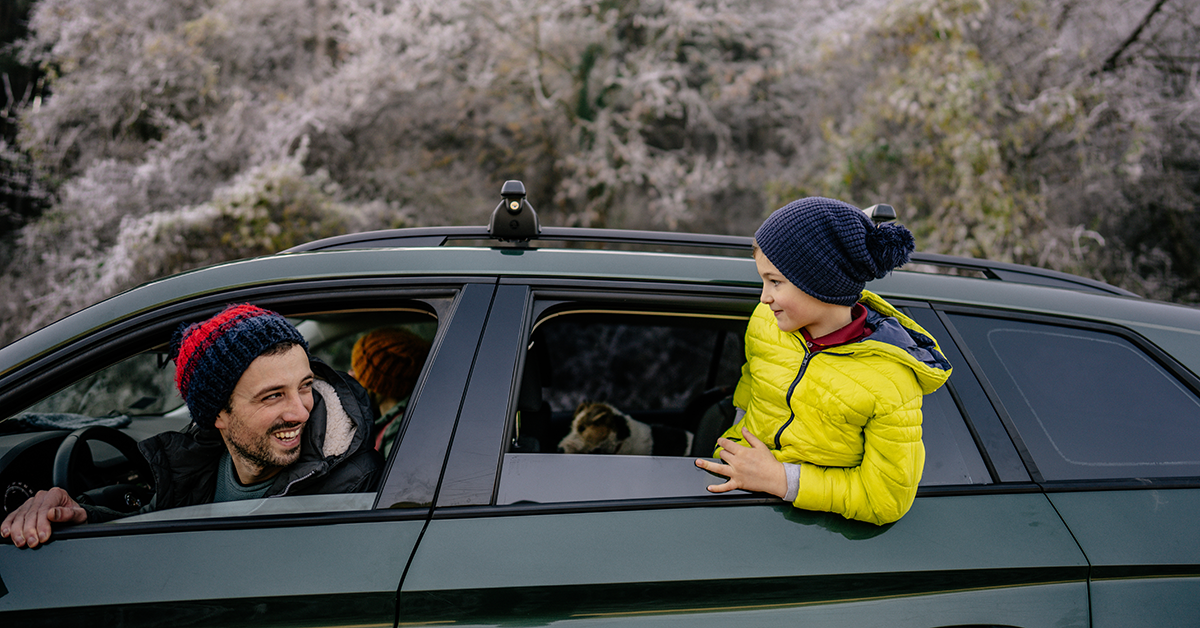Winter road trips: Arrive safely with advice from AAA
Winter road trips: Arrive safely with advice from AAA

Let's face it, winter weather can be stressful to drive through. When those drives are extended beyond the common commute, the stress and the dangers involved with driving both can rise.
Winter storms, bad weather, and sloppy road conditions are a factor in nearly half a million crashes and more than 2,000 road deaths every winter, according to research by the AAA Foundation for Traffic Safety.
Get ready for that long and potentially cold and icy drive with the following tips.
- Check weather conditions: Monitor weather forecasts and road conditions before your trip. Be aware of potential storms or adverse weather along your route.
- Prepare your vehicle: Ensure your vehicle is winter-ready with antifreeze, good tires, and proper fluid levels. Pack an emergency kit with essentials like blankets, a flashlight, jumper cables, and a first aid kit.
- Drive slowly and cautiously: Reduce your speed in snowy or icy conditions. Increase following distances to allow for longer stopping distances.
- Brake and accelerate gently: Avoid sudden movements with the brake or accelerator to maintain control. Use gentle, steady pressure on the brakes to prevent skidding.
- Watch for ice: Be cautious on bridges, overpasses, and shaded areas where ice can form more easily. If you encounter black ice, try to steer straight and avoid sudden movements.
- Stay informed: Stay updated on road conditions through radio broadcasts or navigation apps. Follow any travel advisories or warnings issued by local authorities.
- Watch your fuel tank: Maintain at least a half tank of gas to prevent fuel line freezing. In case of delays or detours, having extra fuel is a good precaution.
- Plan stops wisely: Choose well-traveled routes and avoid isolated or less-maintained roads. Plan rest stops in advance, considering places with facilities and accommodations.
- Charge communication devices: Ensure your phone and other communication devices are fully charged. Consider bringing a portable charger for backup power.
- Inform others: Share your travel plans with someone and check in periodically. Provide an estimated arrival time and your route.
- Pack necessities: Bring warm clothing, blankets, and extra layers in case of an emergency. Pack snacks and water in case you're delayed or stuck.
- Know how to handle breakdowns: Familiarize yourself with basic car troubleshooting or have roadside assistance contact information. If stranded, stay in your vehicle, run the engine periodically for warmth, and make sure the exhaust pipe is clear.
Preparation is key to safe driving during long winter trips. If you're taking a long car trip in the winter, have your vehicle checked by a AAA Approved Auto Repair facility before hitting the road.
No matter how much you prepare, there is the risk of getting stuck in the snow when driving in the winter. If you get stuck:
- Stay with your vehicle: Your vehicle provides temporary shelter and makes it easier for rescuers to locate you. Do not try to walk in a severe storm. It is easy to lose sight of your vehicle in blowing snow and become lost.
- Don’t over exert yourself: When digging out your vehicle, listen to your body and stop if you become tired.
- Be visible: Tie a brightly colored cloth to the antenna of your vehicle or place a cloth at the top of a rolled up window to signal distress. At night, keep the dome light on if possible. It only uses a small amount of electricity and will make it easier for rescuers to find you.
- Clear the exhaust pipe: Make sure the exhaust pipe is not clogged with snow, ice or mud. A blocked exhaust pipe can cause deadly carbon monoxide gas to leak into the passenger compartment of the vehicle while the engine is running.
- Stay warm: Use whatever is available to insulate your body from the cold. This could include floor mats, newspapers or paper maps. Pre-pack blankets and heavy clothing to use in case of an emergency.
- Conserve fuel: If possible, only run the engine and heater long enough to remove the chill. This will help to conserve fuel.
Keep these tips in mind next time you're planning to take an extended drive through winter conditions. Find more tips for drivers, homeowners, and much more at the AAA Member Connection blog.
Smart drivers like you know that following AAA's advice can help you stay safe on the road, but it's impossible to predict when road conditions or other drivers can cause an accident. Turn to AAA Insurance to keep you covered against those unpredictable, unwanted moments.